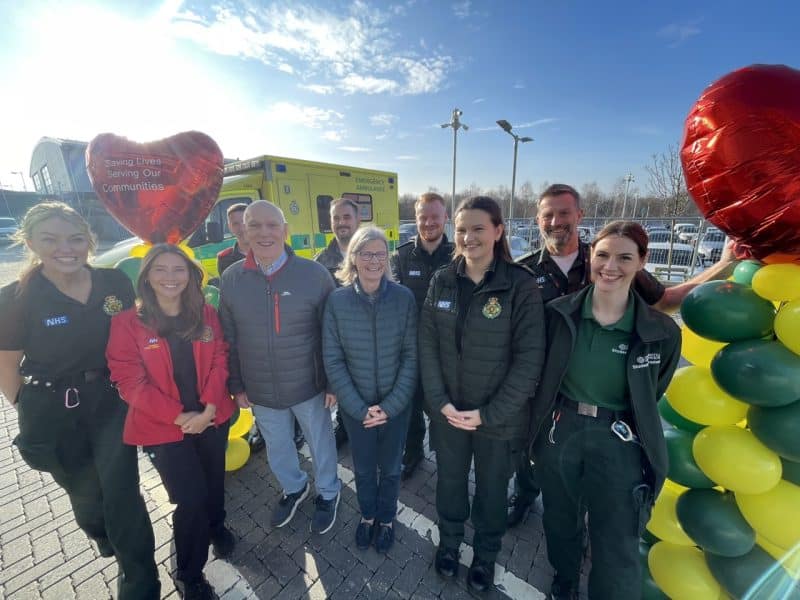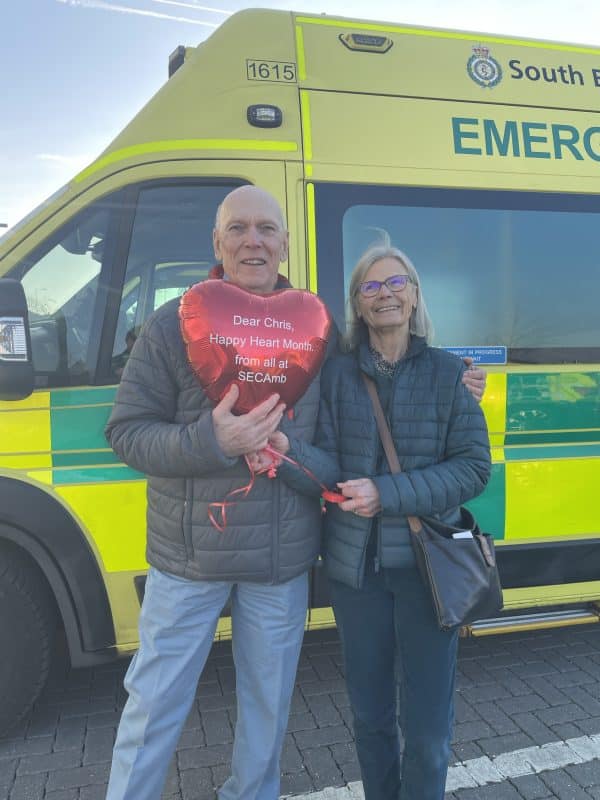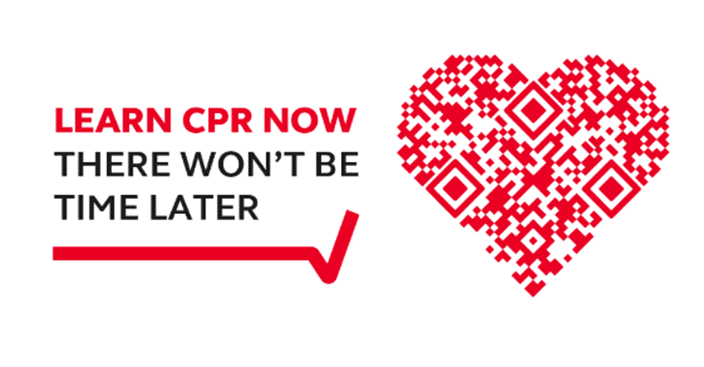 When now 78-year-old Chris Mills collapsed in Chatham last October, he had no pulse and his heart had stopped. But thanks to the swift actions of an off-duty nurse who immediately started chest compressions, and the rapid response of emergency crews, Chris survived against the odds.
When now 78-year-old Chris Mills collapsed in Chatham last October, he had no pulse and his heart had stopped. But thanks to the swift actions of an off-duty nurse who immediately started chest compressions, and the rapid response of emergency crews, Chris survived against the odds.
Now, on Valentine’s Day, he and his wife Brenda were reunited with the team that helped to save his life, sending a powerful message about the importance of life-saving training.
Their reunion took place alongside the launch of South East Coast Ambulance Service’s (SECAmb’s) annual cardiac arrest report, which has revealed it as the top-performing service for survival rates in the country for out-of-hospital cardiac arrests.
But with more than 30,000 out-of-hospital cardiac arrests happening every year in the UK, and fewer than one-in-ten patients surviving, the call to action has never been clearer – more people need to learn cardiopulmonary resuscitation (CPR).
Chris’s survival is proof of how critical every second is. On the afternoon of 12 October 2024, he was out in Chatham when he suddenly collapsed. Off-duty nurse, Rachael Lewis from Medway Maritime Hospital found Chris unresponsive and recognised the signs of cardiac arrest before immediately starting chest compressions, keeping oxygen circulating to his brain and vital organs until help arrived.
Within minutes of the 999 call to Emergency Medical Advisor, Kelly Hayes, Resource Dispatcher, Jade Newman coordinated a team of nine colleagues to the scene, including Community First Responder (CFR) Jade Clabon.
 Chris was stabilised and taken to Medway Maritime Hospital, where he made a remarkable recovery. Now, he and Brenda are determined to encourage more people to learn CPR so that others can have the same chance he did.
Chris was stabilised and taken to Medway Maritime Hospital, where he made a remarkable recovery. Now, he and Brenda are determined to encourage more people to learn CPR so that others can have the same chance he did.
With the Trust’s record-breaking survival rates reinforcing the message, the need for more CPR-trained members of the public has never been greater. Workplaces, schools, and community groups are encouraged to take part in CPR training and ensure public-access defibrillators are readily available.
In person CPR training is available throughout the UK from multiple organisations, while both the BHF and the Resuscitation Council UK offer online training in CPR and defibrillator use.
The British Heart Foundation has an online training tool, RevivR, a free and easy-to-use 15-minute training course.
The Resuscitation Council has created a “CPQR code” – a heart shaped QR code that directs people to a short video on how to do CPR.

Face-to-face first aid and CPR courses can also be booked through St John Ambulance and the British Red Cross.
“As a CFR, I know how vital those early moments are,” Jade said. “The actions of Rachael that day gave Chris the best possible chance of survival and it’s a reminder of why everyone should know CPR, as it truly saves lives.”
Rachael Lewis, Clinical Practice Facilitator at Medway NHS Foundation Trust, said: “Thanks to my partner who is CPR-trained, and all the members of the public that stopped to help us, alongside colleagues from SECAmb and the emergency services, we were able to deliver effective CPR to save Chris’ life.
‘'I would encourage anyone to go out and learn CPR – it might seem like a scary thing to do but the impact can be life-saving.’’
Chris said: “I wouldn’t be here today if it wasn’t for the incredible teamwork between the nurse who stopped to help, the paramedics who arrived so quickly, and the hospital staff who continued my care,” Chris said. “I want everyone to know that learning CPR can make all the difference, because it saved my life.”
If you see someone collapse and they’re not breathing, don’t hesitate, call 999, start CPR, and use a defibrillator if one is available,” added Jade. “Every second counts.”
